General
CARTA – Call for PhD Applications, 2016/2017
Published
10 years agoon
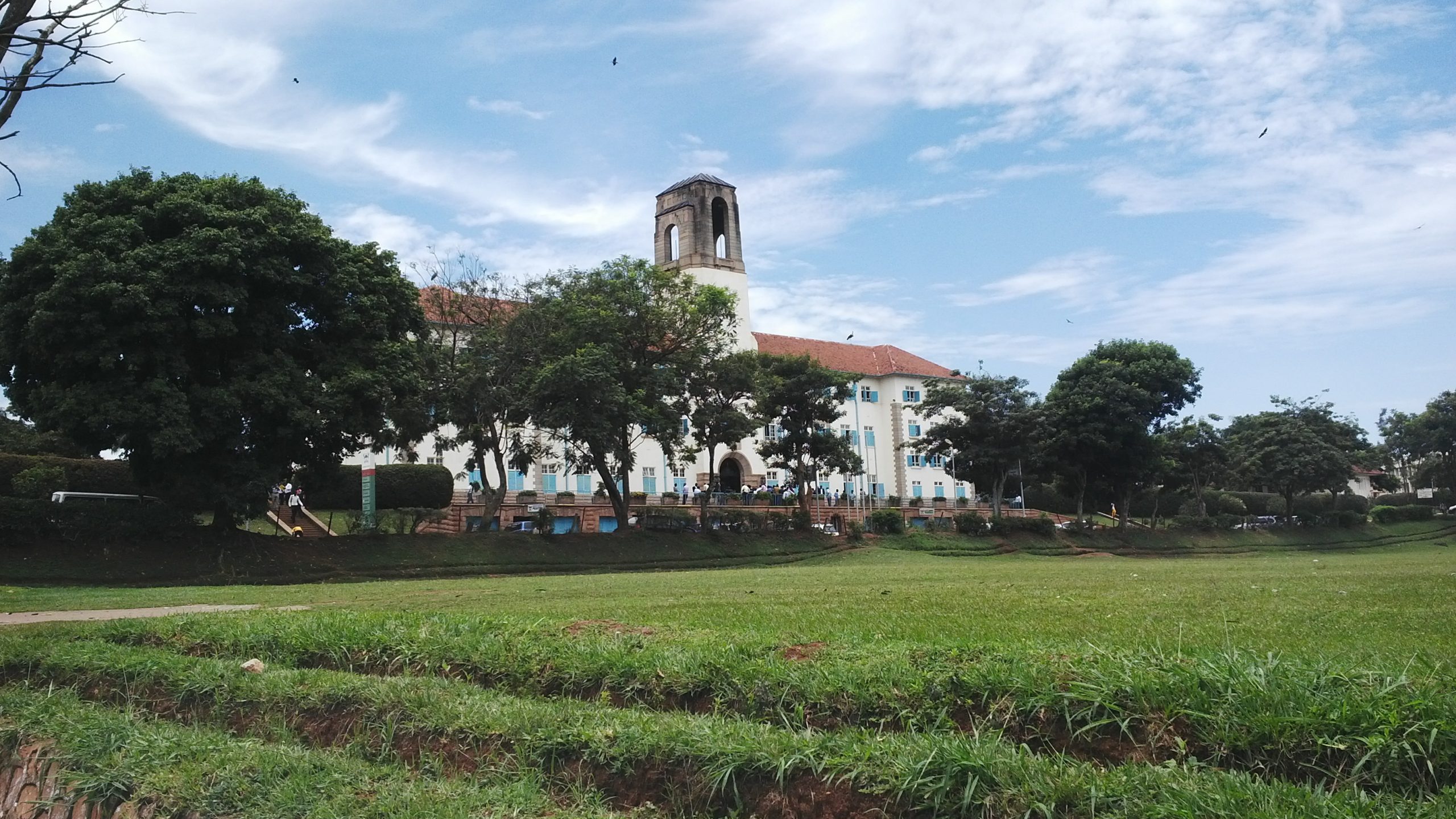
Background
The Consortium for Advanced Research Training in Africa (CARTA) is an initiative of nine African universities, four African research institutes, and select northern partners. CARTA offers an innovative model for doctoral training in sub-Saharan Africa to strengthen the capacity of participating institutions to conduct and lead internationally-competitive research.
The multi-disciplinary CARTA program is open to staff of participating institutions who are interested in conducting their PhD research on topics relevant to the broad fields of public and population health. We welcome applications from any discipline, such as public health, demography, anthropology, communication, and economics, among others, as long as the research question aims to contribute to public and population health issues in Africa.
Over the medium-term, CARTA aims to produce a critical mass of high-quality graduates trained to address the complex issues surrounding health and development in Africa, retain them in the region, and provide them with a vibrant intellectual environment, as well as viable and challenging research and growth opportunities. CARTA aims to achieve reforms in higher education by:
1. Assisting universities to develop enriching and vibrant academic and research environments; and
2. Supporting promising African scholars who teach at affiliated universities to obtain high-quality doctoral training in public and population health-related fields.
CARTA is currently offering a collaborative doctoral training program in public and population health. This program has been developed in response to the great challenges faced by Africa’s institutions of higher education in addressing the training and retention of the next generation of academics in the region. Women are particularly encouraged to apply.
Specifically, CARTA seeks to fund candidates who will be future leaders in their institutions; that is, young, capable, and committed individuals who, in time, will ensure that their universities will be the institutions of choice for future generations of academics and university administrators wishing to make a positive impact on public and population health in Africa.
Successful applicants will attend CARTA’s innovative series of Joint Advanced Seminars (JAS) for cohorts of doctoral students admitted and registered in the participating African universities.
Both the development and delivery of these courses are jointly-led by regional and international experts. The seminars consist of didactic sessions, discussions, demonstrations, and practice labs. These activities collectively serve to:
1. Expose students to key theories and concepts, seminal readings, and research methods of disciplines relevant to public and population health;
2. Train students in critical research skills; and
3. Build and maintain a network of researchers for scientific collaborations, professional support, and mutually beneficial exchange of scientific resources.
The advanced seminars are offered once annually for four years to each cohort and build skills and conceptual depth from year to year. Each JAS runs for 3 to 4 weeks. Specific topics covered in each JAS include the following:
- JAS-1 builds critical thinking, technical skills, and other core research competencies, and introduce students to the essential concepts and seminal articles of the disciplines brought together under CARTA
- JAS-2 focuses on data management and analysis. Fellows learn to use software packages for qualitative and quantitative data management and analyses. Practice sessions use real research data and current software packages for hands-on training
- JAS-3 focuses on data presentation, the doctoral dissertation, and scientific writing and communication skills to facilitate results dissemination and policy engagement
- JAS-4 addresses professional development including skills necessary to manage and teach large class sizes, raise and manage research funds, grant writing and research management. JAS-4 is also designed to serve as an opportunity for senior fellows to practice mentoring of junior fellows through discussions and laboratory sessions, software training, and general information sharing.
During the 2016/2017 academic year, the CARTA program is planning to offer up to 25 PhD fellowships. The Fellowship, which is tenable at one of the participating African universities, includes the cost of fellows’ participation in the advanced seminars; a modest monthly stipend; small grants for research activities; a laptop loaded with relevant software; funds for travel to conferences, as well as costs for participating in joint program activities. The fellowship runs for a maximum of four years. Fellowships cover tuition fees, medical insurance, and other university fees in special circumstances only. Partner institutions have committed to continue paying Fellows’ salaries (or equivalent) and to modify workloads for the fellows to enable them to fully participate in CARTA organized activities pertaining to their PhD program and also to concentrate on their PhD studies. Fellows are encouraged to seek supplemental funding to cover additional costs of their doctoral program.
Participating African Universities
- Makerere University, Uganda.
- Moi University, Kenya.
- Obafemi Awolowo University, Nigeria.
- University of Dar es Salaam, Tanzania.
- University of Ibadan, Nigeria.
- University of Malawi, Malawi.
- University of Nairobi, Kenya.
- University of Rwanda, Rwanda.
- University of the Witwatersrand, South Africa.
Participating Research Institutes
- African Population and Health Research Center (APHRC), Kenya.
- Agincourt Health and Population Unit, South Africa.
- Ifakara Health Institute (IHI), Tanzania
- KEMRI/Wellcome Trust Research Programme, Kenya.
Northern Partners
- Brown University, USA.
- Canadian Coalition for Global Health Research (CCGHR), Canada.
- Swiss Tropical and Public Health Institute (Swiss TPH), Switzerland.
- Umeå University, Sweden.
- University of Gothenburg, Sweden.
- University of Warwick, UK.
Eligibility
- A Masters degree in a relevant field.
- Prior admission into a PhD program is not required for application but awards are contingent on such admission being obtained at one of the participating African universities.
- Applicants for this program must be teaching or research staff at one of the participating African institutions and should be committed to contributing towards building capacity at their institutions.
- Applicants’ PhD research proposal must be related to public and population health.
- Fellowships are only open to people who have not yet registered for a PhD or are in the very early stages (first year) of the PhD program.
- Applicants must commit to participation in all four annual residential Joint Advanced Seminars (JASes), and to engage in inter-seminar activities designed to keep fellows actively engaged and in continual communication with peers and mentors.
- Male applicants must be under the age of 40 years and female applicants under the age 45 years.
Application Procedure
- Contact the CARTA focal person) at your institution to discuss your interest and obtain application materials. Application forms may also be downloaded from the CARTA website (www.cartafrica.org)
- Submit your application to the local CARTA committee in your institution (also email a copy of all application materials to (carta@aphrc.org ), which will conduct the initial screening process and submit successful applications to the CARTA secretariat. The deadline for submissions is May 15, 2016.
- If successful at the university selection level, the CARTA secretariat will inform and contact you to proceed to the next level
- Successful applicants at the university selection level will be expected to:
- Complete an online-based pre-JAS, Part I tasks
- A competency course (June 5, 2016 – July 5, 2016)
- Send a full application to the CARTA secretariat. The deadline for submission of the full application is July 5, 2016.
5. Final fellowship decision, which is independent of the university application, will be communicated by CARTA secretariat by November 1, 2016.
The Application Form can be accessed from the link below.
CARTA Focal Persons
1. Makerere University, Uganda
Prof. Anne Katahoire
Director, Child Health and Development Centre
Faculty of Medicine
Makerere University
P.O. Box 6717, Kampala, UGANDA
Tel: +256 414 541684/530325
Email: annekatahoire@yahoo.co.uk
Prof. Buyinza Mukadasi Director, Directorate of Research and Graduate Training, Makerere University P.O. Box 7062, Kampala, UGANDA Tel: +256-414-530983 Cell: +256-774515366 Fax: +256-414-533809 Email: buyinza@rgt.mak.ac.ug; buyinza@forest.mak.ac.ug
2. Obafemi Awolowo University, Nigeria
Prof. Anthony Aluko Mabayoje
Department of Sociology & Anthropology Faculty of Social Sciences Obafemi Awolowo University, Osun State, Ile-Ife, NIGERIA Tel: +234 8 054 854 861 Email: niyialuko@oauife.edu.ng, maoaluko@yahoo.com Prof. Peju Esimai College of Health Sciences Obafemi Awolowo University, Osun State, Ile-Ife, NIGERIA Tel: + 2348037211457 pejuesimayi@yahoo.com
3. Moi University, Kenya
Prof. Anne Nangulu Director, Quality Assurance Moi University P.O. Box 3900 30100 Eldoret, KENYA Tel: +254 53 43093 (office) Mobile: +254 733 870 502 Email: anangulu@yahoo.com; deanarts@mu.ac.ke
4. University of Ibadan, Nigeria
Prof. Akinyinka Omigbodun College of Medicine University of Ibadan, NIGERIA Tel: + 234 803 323 0457 Email: omigbodun@yahoo.com; omigbodun@gmail.com Dr. Funke Fayehun Department of Sociology University of Ibadan, NIGERIA Tel: + 234 803 323 0457 Email: cl_funke@yahoo.com
5. University of Rwanda, Rwanda
Dr. Pierre Claver Rutayisire
College of Business and Economics University of Rwanda Huye-campus BP 117, Butare, RWANDA Tel: +250788864744 Email: p.c.rutayisire@ur.ac.rw ; rutayisirepc@gmail.com Dr. Egide Ntangungira Kayonga College of Medicine and Health Sciences Po. Box: 3286 Kigali, RWANDA Email: entagungira@ur.ac.rw
6. University of Dar es Salaam, Tanzania
Prof. Esther W. Dungumaro Director of International Relations University of Dar es Salaam P. O. Box 35091 Dar es Salaam, TANZANIA Tel: +255 757 753396 Email: edungumaro@udsm.ac.tz; dungumaro@gmail.com
Dr. Lucy Namkinga Molecular Biology & Biotech Department University of Dar es Salaam P. O. Box 35091 Dar es Salaam, TANZANIA Email: odulajalucy@yahoo.com
7. University of Malawi, Malawi
Prof. Kamija Phiri College of Medicine University of Malawi Private Bag 360, Chichiri, Blantyre 3, MALAWI +265 999957048 Email: kamijaphiri@gmail.com Prof. Adamson S. Muula Department of Community Health College of Medicine University of Malawi Private Bag 360,Blantyre 3, MALAWI Tel: +265 884 233 486 Email: amuula@medcol.mw
8.University of the Witwatersrand, South Africa
Dr. Jude Igumbor
Senior Lecturer, PhD program Wits School of Public Health, Faculty of Health Sciences University of the Witwatersrand Johannesburg, SOUTH AFRICA Tel: +27 72 791 59 27 Email: Jude.Igumbor@wits.ac.za ; judeigumbor@yahoo.co.uk
9. University of Nairobi, Kenya
Prof. Kimani Murungaru
Director, Population Studies & Research Institute University of Nairobi P.O. Box 30197 Nairobi, KENYA Tel: +254 20 318262 Ext 28029 Email: murungaruk@uonbi.ac.ke
Dr. Dismas Ongore
Senior Lecturer University of Nairobi School of Public Health P.O. Box 30197 Nairobi, KENYA +254 020 2724639 Email: dongore@uonbi.ac.ke. Research Organizations
Ifakara Health and Development Research Centre, Tanzania
Prof. Honorati Masanja Project Head Ifakara Health and Development Research Centre P.O. Box 53, Mlabani Passage, Ifakara, TANZANIA Tel: +255 232 625 164; +255 232 625 377 Mobile +255784605046 Email: hmasanja@ihi.or.tz Dr. Rose Nathan Ifakara Health and Development Research Centre P.O. Box 53, Mlabani Passage, Ifakara, TANZANIA Email: rnathan@ihi.or.tz; rosenathan2001@yahoo.co.uk
African Population and Health Research Center, Kenya
Dr. Chimaraoke Izugbara Director, Research Capacity Strengthening Division African Population and Health Research Center P. O. Box 10787-00100, Nairobi, KENYA Tel: +254-20-2720400/1/2 Email: cizugbara@aphrc.org
Agincourt Health and Population Unit, South Africa
Prof. Kathleen Kahn Associate Professor Health and Population Division School of Public Health University of the Witwatersrand Johannesburg, SOUTH AFRICA Tel: +27 11 717 2606 Email: Kathleen.Kahn@wits.ac.za
You may like
General
Makerere Explores Strategic Industry Partnership with Psalms Food Industries to Strengthen Manufacturing Innovation
Published
3 hours agoon
March 4, 2026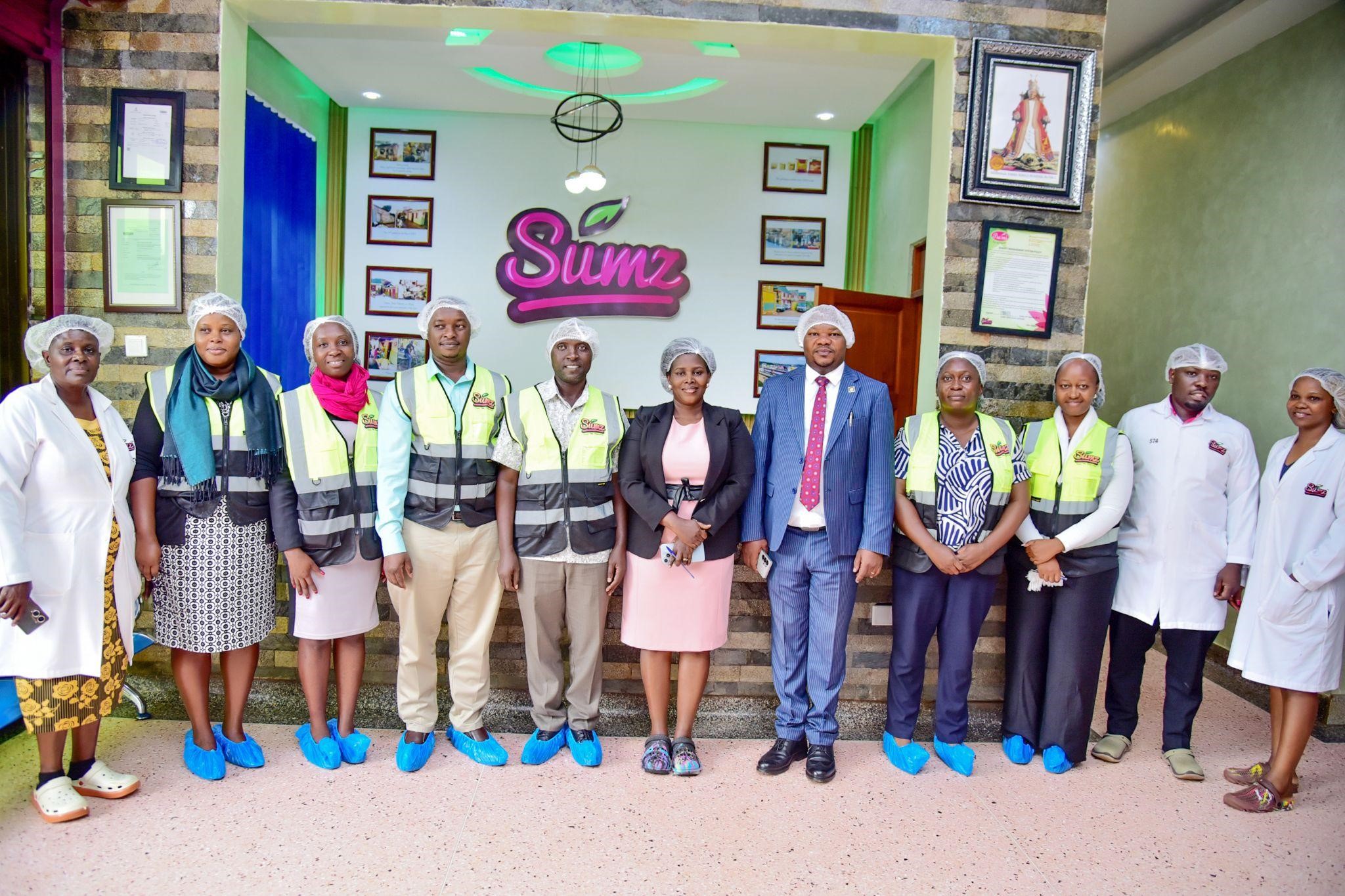
On 2nd March, 2026, representatives from the Advancement Office, the College of Business and Management Sciences and the University Innovation Pod visited Psalms Food Industries to discuss a prospective partnership aimed at strengthening university–industry collaboration in manufacturing, research, innovation, and skills development.
Psalms Food Industries, a homegrown snacks innovation and manufacturing company, operates three major brands, namely, Sumz, Afrikan Harvest and Krunchables, which have grown to a range of 37 products and target the introduction of five new products annually. The company distributes products across Kenya, Rwanda, the Democratic Republic of Congo, South Sudan, and, recently, Tanzania. As a labour of love, the idea of producing snacks was born during the honeymoon of Mr and Mrs Ngabirano, who now run Psalms Food Industries side by side.
Dr. Denis Ngabirano, CEO and Co-Founder of Psalms Food Industries, during the meeting, described the company as “a snacks innovation house, with all our products developed in-house.” He noted.
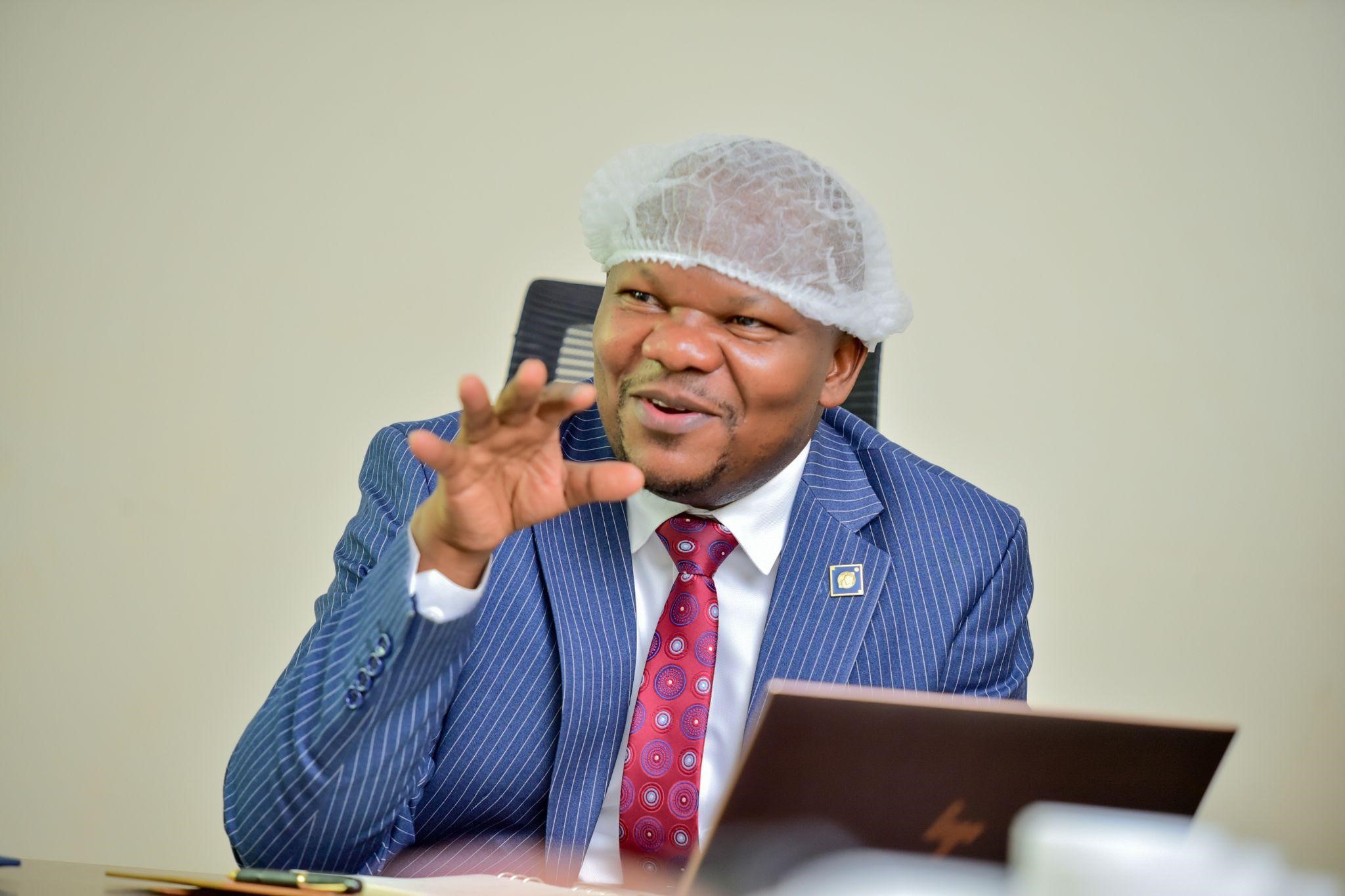
He emphasised the company’s commitment to quality assurance and consumer-centred research, noting that Psalms conducts surveys and gathers customer feedback to inform product development, supported by an internal microbiology and chemistry laboratory.
Dr. Denis Ngabirano noted that the company had only recently introduced two brands, “Afrikan Harvest for it’s health conscious clientele and Kruchables for it’s volume centric clientele.
“Afrikan Harvest has no additives, it is a brand for health-focused consumers,” he explained, while highlighting the differentiated positioning of their product lines. “Sumz is our premium brand, and Krunchables focuses on volume.”
Student-Centered Experiential Learning
A key focus of the meeting was structured experiential learning for students across disciplines. Potential areas of collaboration include internships, graduate trainee pathways, and hands-on exposure within Psalms’ incubation and production facilities.
The proposed engagement spans multiple fields, including environmental sciences, engineering, procurement and logistics, finance and accounting, quality control, production and manufacturing, human resource management, marketing, and international business.
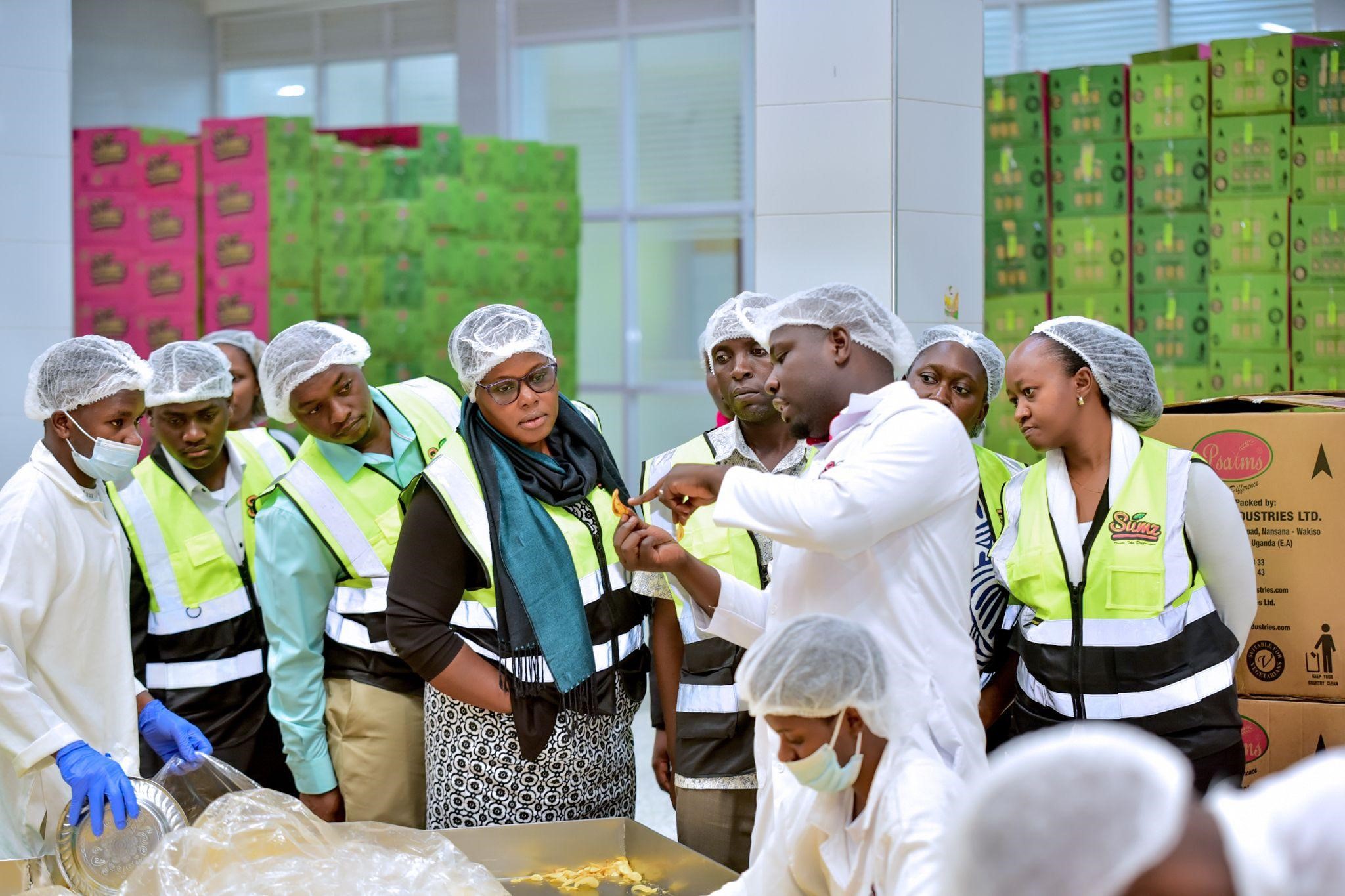
The partnership could provide students with direct exposure to real-time production systems, standard operating procedures (SOPs), and quality assurance frameworks, strengthening the practical relevance of their academic training.
Among the innovative ideas discussed was a potential competition involving students from the Fine Art and Industrial Design disciplines to redesign packaging for selected Sumz products. The proposal would allow top designs to be commercially adopted, creating a direct bridge between creativity, intellectual property development, and industrial application.
Research, Innovation and Commercialisation
Both institutions expressed interest in joint applied research initiatives, particularly in process optimisation, data analytics for manufacturing efficiency, product improvement, and sustainable production systems.
Opportunities were also discussed around collaborative research in machine design, crop development for snack processing, and factory energy solutions, areas that not only benefit Psalms but have broader implications for Uganda’s manufacturing sector.
The engagement further highlighted potential linkages with the University’s innovation and commercialisation structures, including the University Innovation Pod (UNIPOD), to support co-creation and scaling of student-led innovations.
Mr Awel Uwihanganye, Chief Advancement Officer at Makerere University, proposed strengthening the engagement through structured programming, including a planned collaboration between the University’s innovation Hub and the upcoming incubation Hub at Psalms Food Industries, particularly to support the commercialisation of research outcomes for both students and staff.
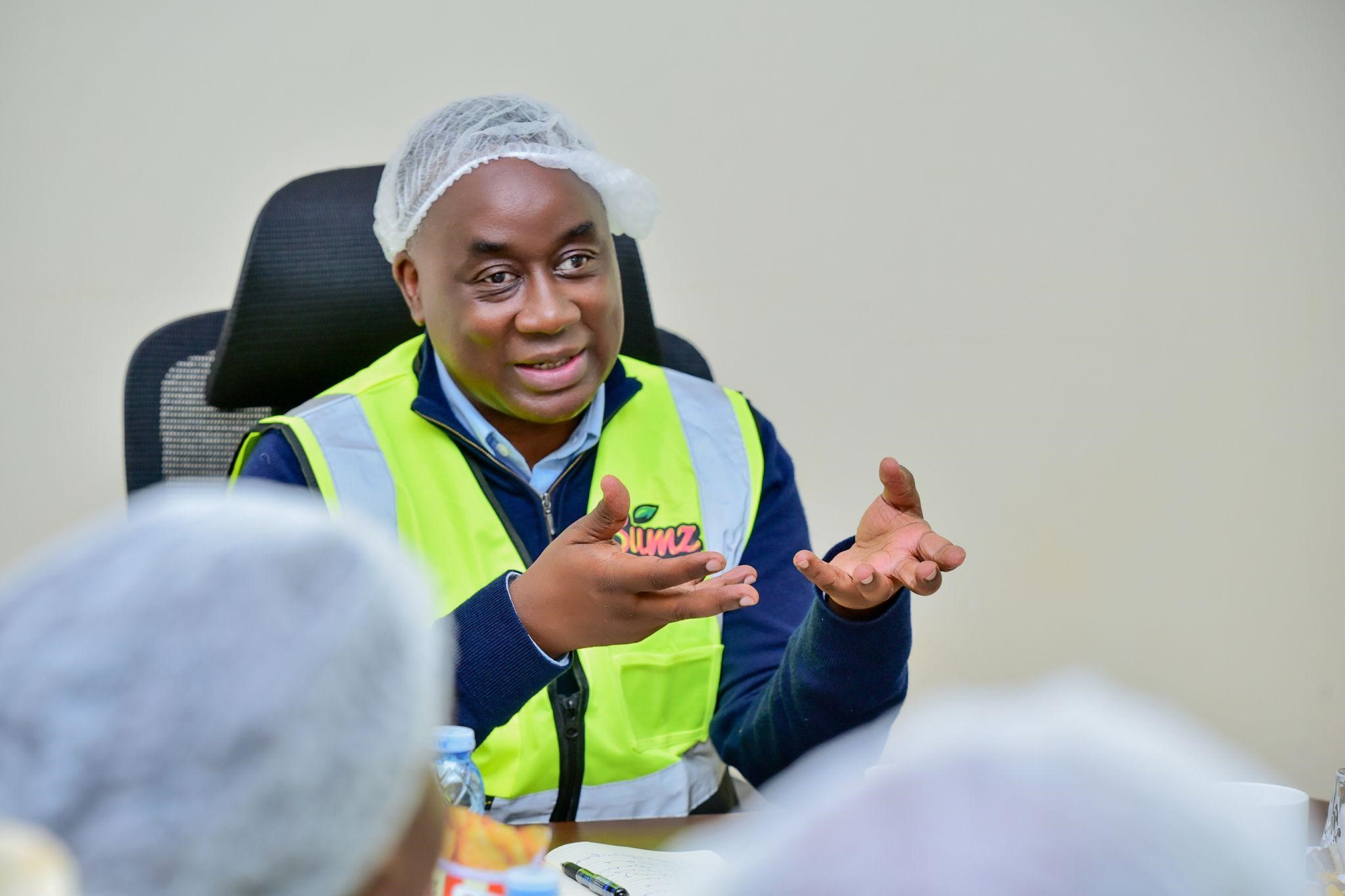
Curriculum Co-Creation and Staff Exchange
Beyond student placements, discussions also focused on co-developing academic content that responds more directly to industry needs, particularly within the manufacturing value chain.
Proposals included guest lectures by industry practitioners, staff exchange programmes to expose academic staff to factory operations, and tailored short courses for Psalms staff based on identified skills gaps.
Dr. Jude Mugarura, Head of the Department of Marketing and Management at COBAMS, emphasised the importance of embedding the partnership within academic programming. He proposed “internships for students in HR, marketing, international business, accounting and finance,” as well as staff exchanges to give University staff hands-on exposure to manufacturing operations.
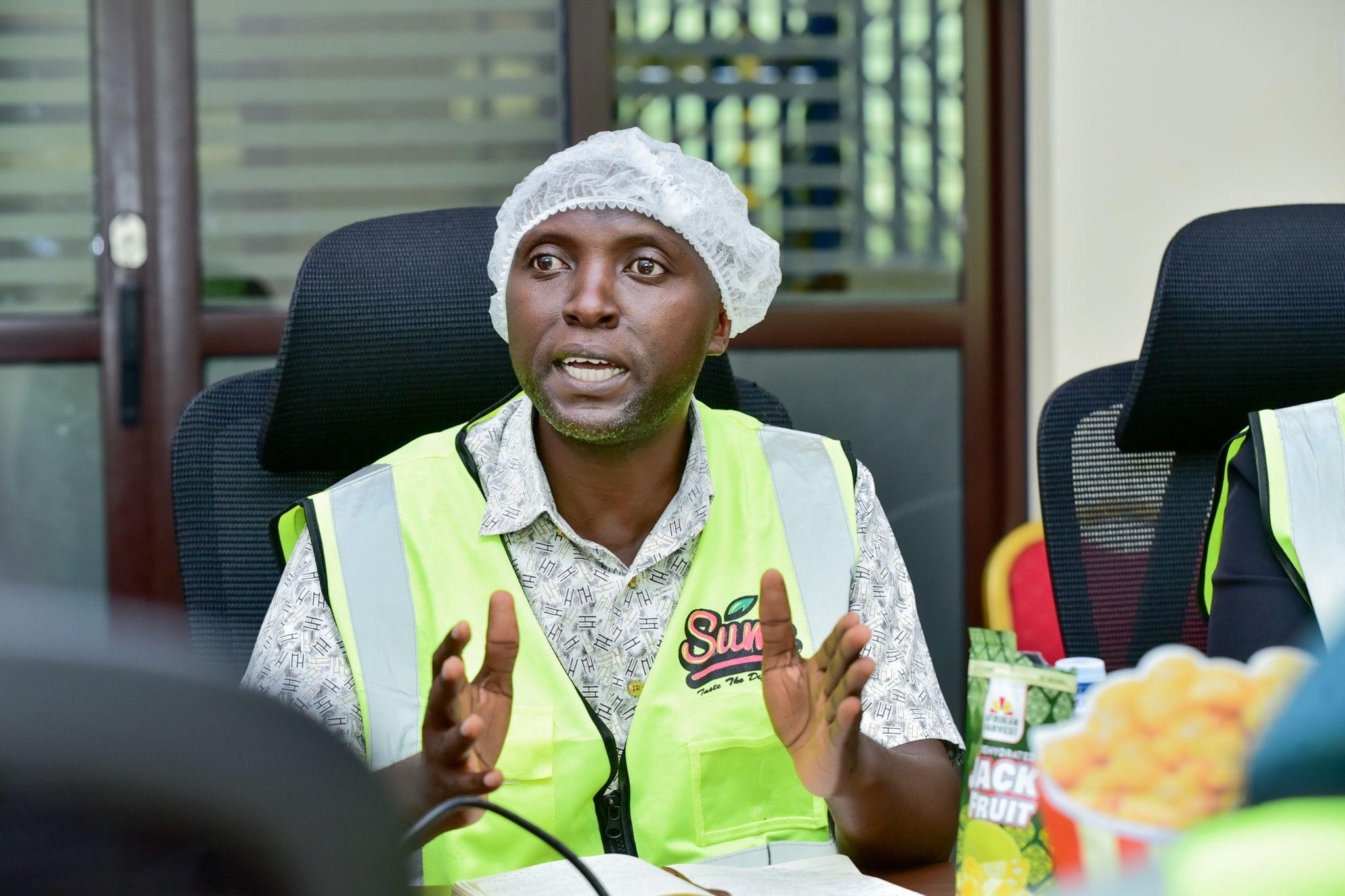
He further suggested specialised courses tailored to the factory’s needs and attachment of research students interested in manufacturing. Such collaboration would contribute to curriculum responsiveness and ensure that graduates are equipped with market-relevant competencies.
Strengthening University–Industry Linkages
The engagement reflects Makerere University’s continued commitment to strengthening partnerships that bridge knowledge generation and real-sector application.
Both institutions expressed a shared vision of building a structured, mutually beneficial collaboration that integrates research, innovation, skills development, and enterprise growth, positioning the University as a key knowledge partner in Uganda’s manufacturing transformation.
Discussions remain ongoing as both parties refine priority areas for formalisation.
Caroline Kainomugisha is the Communications Officer, Advancement Office.
General
Makerere University commemorates 13 transformative years of partnership with Mastercard Foundation
Published
2 days agoon
March 2, 2026
On Friday, 27th February 2026, Makerere University proudly celebrated 13 years of a significant partnership with the Mastercard Foundation, a prestigious independent organisation headquartered in Toronto, Canada. Since its inception in 2013 with the launch of the Scholars Program-currently headed by Prof. Justine Namaalwa, this collaboration has grown significantly, expanding to include two additional initiatives: The E-learning Initiative-headed by Prof. Paul Muyinda Birevu and the Africa Climate Collaborative-headed by Prof. Gorretie Nabanoga. This long-term partnership underscores the shared commitment to fostering education, innovation, and sustainability in Uganda and across Africa.
The colourful event coincided with the 76th Graduation Ceremony, during which Makerere University honoured Ms. Reeta Roy, the Founding President and CEO of the Mastercard Foundation, with an honorary Doctor of Laws.

In her commencement speech, Ms. Roy thanked Makerere University for considering a partnership with the Mastercard Foundation and for conferring upon her a prestigious honorary award.
“Mastercard Foundation is honoured to collaborate with this esteemed university, and I appreciate the recognition through this award. I am excited to be associated with Makerere University and look forward to actively embodying its values. Joining the broader community of alumni from this distinguished institution is a privilege, and I am eager to contribute to its legacy,” stated Ms. Roy.

During the reception in honour of Ms. Roy, the Chairperson of Makerere University Council, Dr. Lorna Magara, acknowledged the invaluable support from the Mastercard Foundation. She emphasised the profound impact of the Foundation’s various initiatives, particularly the scholarships for disadvantaged youth, which enable them to access higher education and opportunities that might have otherwise been beyond their reach.
“On behalf of the Makerere University Council and the broader University community, I extend our sincere gratitude to Mastercard Foundation for its commitment to collaborating with Makerere University in various endeavours, especially for providing scholarships to our underprivileged young people who would never have stepped inside a lecture room at the University.” Dr. Magara stated.

Dr. Magara, in a special way, thanked Ms. Roy for her transformative leadership and unwavering commitment to supporting young people in Africa, citing her efforts to ensure young people get their voices heard.
“As a university, our business is with young people. We are therefore committed to providing the environment and education that deliver meaningful pathways. We will provide an environment that ensures young people have a voice and agency to create meaningful change in society.” Dr. Magara pledged.

Dr. Magara further congratulated Ms. Roy on her honorary Doctor of Laws from Makerere University, noting that it is the university’s highest honour for individuals who have excelled in their careers.
“On behalf of the Makerere University community, I would like to extend my heartfelt congratulations on your honorary Doctor of Laws. This esteemed recognition represents the highest honour our institution can bestow on individuals who have demonstrated exceptional achievement and excellence across various facets of their career.” Dr. Magara remarked.
Prof. Justine Namaalwa, the Program Director of the Mastercard Foundation Scholars Program and the Coordinator for all Mastercard Foundation Initiatives at Makerere University, expressed her appreciation for the thirteen-year collaboration between Makerere University and the Mastercard Foundation. She highlighted that the partnership had yielded significant, impactful results.

“In 2013, Makerere University partnered with the Mastercard Foundation to educate the next generation of transformative African leaders who can positively impact their lives, their communities, and the economies of Africa. The partnership has had a significant impact. I thank the University Management and the Foundation team for this visionary collaboration,” remarked Prof. Namaalwa.
Prof. Namaalwa articulated that the partnership with the Mastercard Foundation is primarily focused on empowering young people as agents of change for transformational leadership in Africa. She presented compelling statistics demonstrating the positive impact of the scholars’ program, highlighting the success of individuals who have completed their education and their subsequent professional experiences after university graduation.

“This partnership focuses on young people, aiming to create positive change in their lives. To date, the Scholars Program has graduated 974 alumni, with 48% securing formal employment, 18% starting their own businesses, 8% participating in internships, and 5% pursuing further education. Overall, 72% of Scholar alumni are actively engaged in employment or entrepreneurship,” Prof. Namaalwa stated.
The colourful event showcased a dynamic array of activities that highlighted the entrepreneurial spirit of Scholars and alumni from the Mastercard Foundation at Makerere University. Attendees enjoyed a mini-exhibition featuring innovative products from these ventures.

A video documentary illustrated the positive impact of the three Mastercard Foundation initiatives. The event also featured inspiring poetry recitations by Scholars and a lively atmosphere of music and dance, creating an engaging and memorable experience for all participants.
The high-level event was attended by senior University officials, led by the Chairperson of Council, Dr. Lorna Magara; the Vice-Chancellor, Prof. Barnabas Nawangwe; the Vice-Chancellor, Academic Affairs, Prof. Sarah Ssali, Deputy, and the Ag. Deputy Vice-Chancellor, Finance and Administration Prof. Winston Tumps Ireeta. Mr Yusuf Kiranda, the University Secretary; and Prof. Buyinza Mukadasi, the Academic Registrar, Chancellor Emeritus-Prof. Ezra Suruma, former Chairperson of the Steering Committee of Mastercard Foundation Scholars Program-Prof. Umar Kakumba, and the Deputy Executive Secretary, RUFORUM, and former Program Coordinator of the Scholars Program at Makerere University-Dr. Florence Nakayiwa, among many other officials graced the function.

The event was also graced by a high-level delegation from the Mastercard Foundation, led by Ms. Reeta Roy, the Founding President of the Foundation, and included the Mastercard Foundation Teams from the Country offices in Kigali, Nairobi, and Kampala; the Program partners; the Mentors, Scholars and alumni; as well as the Program staff of the three Mastercard Foundation Initiatives at Makerere University.
At the end of the event, Makerere University honoured Ms. Reeta Roy with University memorabilia, including a pencil-drawn portrait, a pencil-drawn photo of the Ivory Tower, and other Ugandan crafts. Ms. Roy cut a graduation cake together with the 10 graduates of the 76th graduation ceremony from the Mastercard Foundation Scholars Program.
Bernard Buteera is the Principal Public Relations Officer for the Mastercard Foundation Scholars Program at Makerere University.

It is with great pleasure that I welcome you to this edition of Mak News Magazine, a publication that continues to chronicle Makerere University’s journey as a centre of academic excellence, innovation, and societal transformation.
The stories featured in this issue vividly demonstrate Makerere’s unwavering commitment to addressing national, regional, and global challenges through research, partnerships, and people-centred solutions. They reflect a university that is deeply engaged with society, one that applies knowledge not only to advance scholarship, but also to improve lives.
A recurring theme in this edition is innovation for resilience and inclusion. From the College of Agricultural and Environmental Sciences’ Healthy Soy Initiative combating child malnutrition amid climate change, to the cutting-edge work of CEDAT’s Team Green Minds integrating IoT into agriculture, Makerere continues to harness science and technology to respond to pressing development needs. Equally inspiring is the College of Natural Sciences’ success in securing international funding to scale up fish processing technologies, with a deliberate focus on empowering women and strengthening livelihoods.
This issue also highlights Makerere’s growing role in advancing health and wellbeing. The launch of the Early Intervention Psychiatry Services Clinic at Makerere University Hospital marks an important step in strengthening mental health services, while the Hospital’s transformation from a modest sickbay into a centre of excellence stands as a testament to decades of strategic investment, dedication, and service to the nation.
Our commitment to education access and global engagement is equally evident. Strategic partnerships, such as that between the College of Education and External Studies and the Uganda Vocational and Technical Assessment Board, are expanding pathways to quality education. The establishment of the first-ever United States Studies Centre in the Great Lakes Region positions Makerere as a hub for dialogue, research, and policy engagement on global affairs. We also celebrate our vibrant international community, with graduates drawn from 67 nationalities—affirming Makerere’s status as a truly global university.
This edition further showcases initiatives that ensure long-term institutional sustainability, including the launch of the CoCIS Endowment Fund, infrastructure developments such as the modern hostel at Buyana Farm, and transformative programmes supported by the Mastercard Foundation that continue to empower young people across the continent.
As you read through these pages, I invite you to reflect on the collective effort of our students, staff, alumni, partners, and supporters whose contributions make these achievements possible. Together, we continue to shape Makerere University as a place where knowledge serves humanity.
I wish you an engaging and inspiring read.
Prof. Barnabas Nawangwe
VICE CHANCELLOR
Trending
-

 Humanities & Social Sciences1 week ago
Humanities & Social Sciences1 week agoMeet Najjuka Whitney, The Girl Who Missed Law and Found Her Voice
-

 General1 week ago
General1 week ago76th Graduation Highlights
-

 Health2 weeks ago
Health2 weeks agoUganda has until 2030 to end Open Defecation as Ntaro’s PhD Examines Kabale’s Progress
-

 Agriculture & Environment2 weeks ago
Agriculture & Environment2 weeks agoUganda Martyrs Namugongo Students Turn Organic Waste into Soap in an Innovative School Project on Sustainable Waste Management
-

 Health2 weeks ago
Health2 weeks agoMakerere University School of Public Health Graduates First Cohort of Cost-Effectiveness Analysis Short Course
